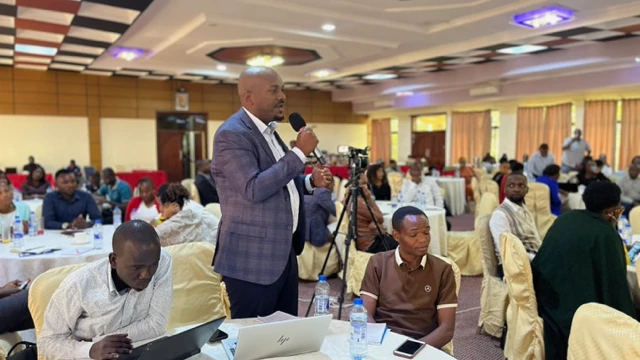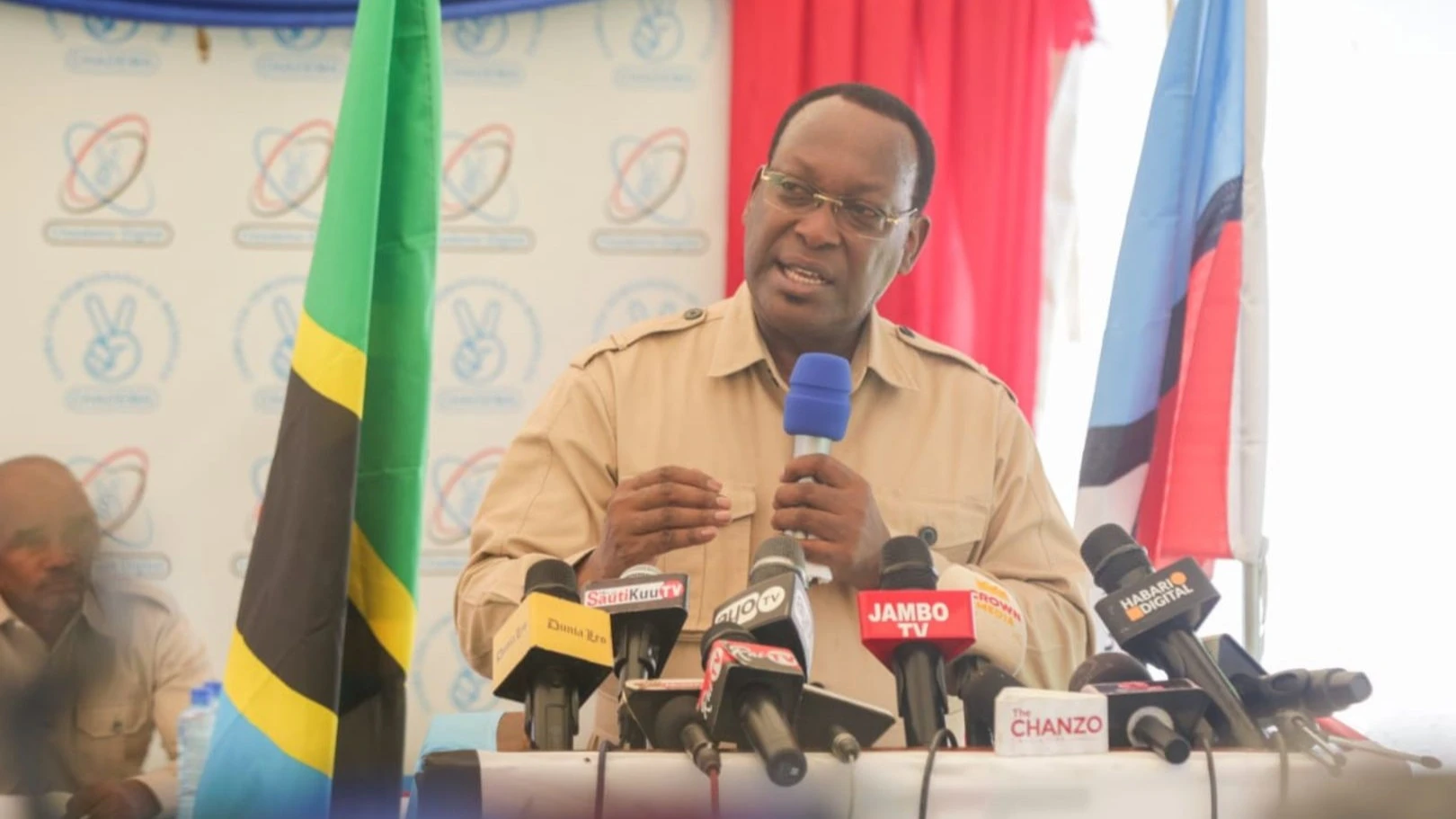Limited funding, expertise hinder climate change research

COUNTRIES including Tanzania face significant economic risks linked to climate change. The risks may lead to labour productivity losses due to high temperatures that could reach 4-6 percent leading to total economic losses of 1.2 percent of Gross Value Added (GVA) by 2030 and 1.5 percent by 2050.
Following the extreme weather events including floods, droughts, and rising sea levels, governments are advised to take urgent action to adapt to climate change.
Tanzania is urrently ranked 145 out of 185 countries on the ND-GAIN Index for climate readiness. The index measures a country's current vulnerability to climate disruptions and its readiness to improve resilience
Dr Jamal Msami is the Principal Researcher and Director of Strategic Research at REPOA, is of the view that successful climate resilience will require integrating climate change mitigation, adaptation, and sustainable development through coordinated efforts across governance, politics, and institutional practices.
The economic toll is already evident. Tanzania’s agricultural sector is losing approximately $200 million yearly from climate-related risks, compounded by energy and water stress.
“With projections that flood damage alone could cost $60 million per year by 2050, the stakes for climate resilience are high,” said Dr Msami when addressing delegates at Policy Forum breakfast debate that brought together key stakeholders from the government, academia, civil society and the private sector.
Sponsored by the Irish Embassy in Tanzania, the debate was themed —‘Shaping Tanzania’s future navigating climate resilient development (CRD) challenges and choices’
CRD is an outcome and a process consisting of actions and social choices made by multiple actors performed over different dimensions of governance, politics, institutions, practices and bounded by ethics, values and worldviews that successfully integrate climate change mitigation, adaptation and sustainable development.
According to Msami Ethics, values, and worldviews must deeply inform these actions. He said CRD is not just an endpoint but an on-going process involving multiple actors and dimensions.
At the heart of CRD is the balance between ensuring climate justice and equity, particularly for Tanzania’s most vulnerable populations, and meeting the country’s international commitments to reduce greenhouse gas emissions by 30-35 per cent by 2030, as per the National Determined Contributions (NDCs).
Although financial investment is vital in mitigating climate change impacts, the researcher suggests that there should be a balance between mitigation and adaptation.
While mitigation moderates climate risks, it can also limit adaptation options, particularly in energy-intensive sectors. At the same time, adaptation measures could inadvertently increase greenhouse gas emissions if not carefully planned.
Between 2015 and 2022, Tanzania received over $5 billion in climate-related development finance, with more than half directed towards adaptation.
Dr Msami suggested that more financial support is needed, particularly for building local capacity, fostering innovation, and developing context-specific resilience strategies.
He mentioned some of the challenges that hinder government efforts in achieving CRD as unsustainable development practices, combined with rapid urbanization and population growth, are increasing Green House Gas (GHG) emissions while straining Tanzania’s existing infrastructure.
Governance and institutional frameworks remain insufficient to address the scope of the climate crisis, with many national development plans failing to fully consider current and future climate risks.
Despite the existence of a National Disaster Risk Management Strategy (2022-2027), its integration into broader development policies has been slow. And the coordination among implementing agencies remains fragmented.
However, despite external financing opportunities being identified, there is no domestic budget allocation for climate adaptation, leaving Tanzania vulnerable to future funding gaps.
There are still growing interest in impact investment and private sector participation in CRD, as well as the recent adoption of carbon trading regulations, which could generate significant financial resources for climate adaptation and mitigation.
Msami also cited the National Disaster Management Strategy and Tanzania’s strong network of stakeholders—from government bodies to academic institutions and civil society—as critical enablers for achieving climate resilience.
He stressed that with the right mix of political will, innovation, and evidence-based policymaking, Tanzania can overcome these challenges and build a sustainable, resilient future.
Rehema Ulimboka, Assistant Lecturer at the University of Dodoma (UDOM) was concerned that destruction of the environment is in a high speed, highlighting the need for continued environmental conservation awareness education to the people.
Ulimboka noted that community-based adoption is vital for building resilience to climate change.
“By engaging local communities solutions become more tailored, sustainable and adaptable to the unique environmental and social challenges they face.”
Forest Officer from the President's Office (Regional Administration and Local Governments), Felister Kagembe said to mitigate climate change impacts the government has now entered into contracts with various companies for carbon trading.
She underscored the need for more awareness education to increase the public understanding on climate change, its impacts as well as how to address them.
“A well-informed public is crucial to driving the success of CRD initiatives, as many communities and individuals lack awareness of climate change risks and the importance of resilience building actions.”
The Irish Embassy in Tanzania, who sponsored the event, has continued to show its commitment to supporting climate resilience initiatives in the country, taking into consideration the importance of international collaboration in addressing climate change, particularly in vulnerable nations like Tanzania.
The Irish government pledged to continue working with local partners to ensure that Tanzania can access the financial, technological, and policy tools it needs to achieve climate resilience.
Studies have shown that navigating a complex path towards climate resilience involves a multifaceted approach that integrates various strategies and stakeholders.
Some of these key steps among others include, evaluating the specific climate risks faced by communities, ecosystems, and economies. Use climate models, historical data, and local knowledge to understand vulnerabilities.
Engage local populations in decision-making processes to ensure their needs and knowledge are incorporated. Foster partnerships between government, businesses, NGOs, and academia.
Creating plans that address economic, social, and environmental dimensions of resilience and focusing on actions that provide the greatest benefit for the least cost.
Protect and restore natural habitats that can buffer against climate impacts, such as wetlands and forests. Implement solutions like green roofs, permeable pavements, and urban forestry.
Upgrade existing infrastructure to withstand extreme weather events and rising sea levels, transition to renewable energy to reduce dependency on fossil fuels, encourage sustainable agriculture, water management, and waste reduction practices and support systems that minimize waste and promote recycling and reuse.
By following these steps, communities and organizations can navigate the complexities of climate resilience effectively, adapting to challenges while building a sustainable future.
Top Headlines
© 2024 IPPMEDIA.COM. ALL RIGHTS RESERVED

























